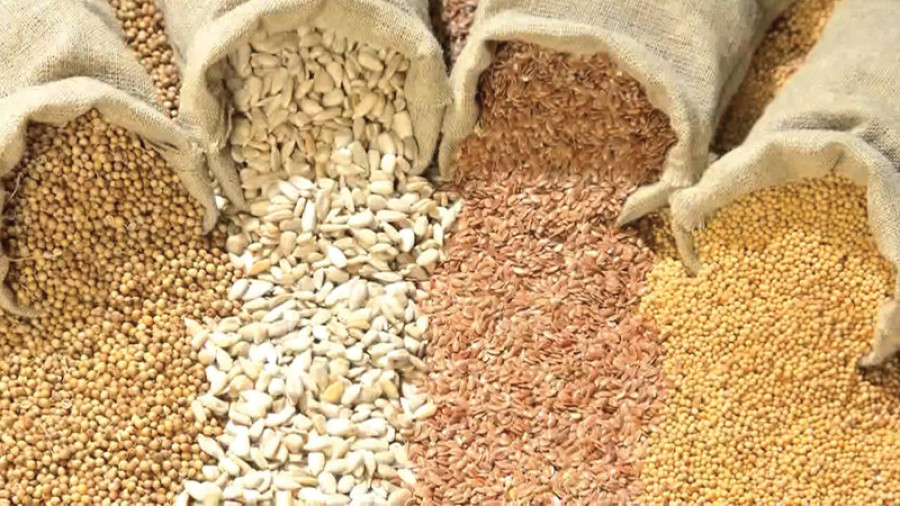Money
Seed bank helps save endangered plants
Locals of Agyauli in Nawalparasi district have established a seed bank to help conserve endangered native cereals and vegetables.
Navin Paudel
Locals of Agyauli in Nawalparasi district have established a seed bank to help conserve endangered native cereals and vegetables.
Due to rapid population growth and consequent environmental impacts, native food plants are in danger of becoming extinct. Locals said that the initiative would help preserve seeds that face potential extinction.
Gun Bahadur Thanet, a local farmer of Agyauli, Godar used to travel to Kawasoti to buy seeds for his farm in the past. He used to spend up to Rs5,000 to buy seeds.
Nowadays, he has started selling his own seeds. Like Thanet, most villagers were totally dependent on seeds supplied by traders. But things have changed now. They don’t go to the market. They go to the seed bank to withdraw whatever amount they will need.
Farmers said that seeds purchased from the market had several issues as sometimes they do not grow. Disease is another problem found in seeds sold in the market.
“After the seed bank came into operation, farmers have access to local seeds. These native seeds are more adapted to the local climate and produce higher yields,” said Thanet. He added that he had planted beans, gourd and paddy on his field spread over 3 bighas.
Farmers who produce seeds deposit them in the bank. It has also become a source of income for many farmers. Finding markets is no more an issue for farmers. “The bank purchases local seeds,” said Buddhi Ram Mahato, secretary of the seed bank. “Hence, farmers are excited to have a seed bank in the district.”
Local farmers have also started planting Kalo Jhinwa and Ghyu Puri paddy varieties from the Tarai, which are on the verge of extinction there. These paddy varieties, which used traditionally to be planted by the Tharu community, have a rich aroma. They also grow faster.
“Today, the bank has about 1,200 types of cereal and vegetable seeds,” said Mahato.
The bank was established five years ago at the initiative of the community. Local Initiatives for Biodiversity, Research and Development (LI-BIRD) of Pokhara provided technical and some financial help to set up up.
Farmers are also producing improved varieties of seeds as the seed bank provides seeds at a minimal cost. Local seeds are given free of cost to members, said Mahato. Last year, the bank sold 35 tonnes of seeds and donated 7 tonnes to seven earthquake affected districts. More than 880 farmers are engaged in commercial seed production in the district. Apart from supplying seeds locally, farmers have shipped 1,226 types of seeds to the National Agriculture Genetic Resources Centre (Gene Bank) at the Nepal Agricultural Research Council.
From this year, the bank has also started determining the quality of seeds in Agyauli.




 23.12°C Kathmandu
23.12°C Kathmandu













